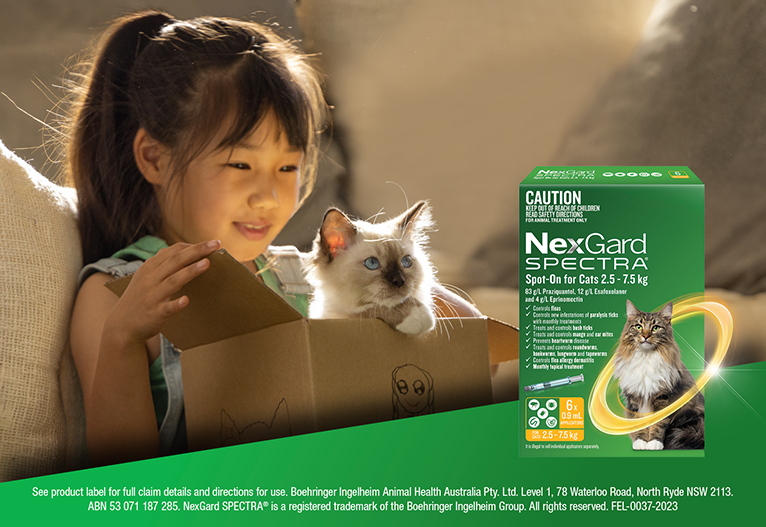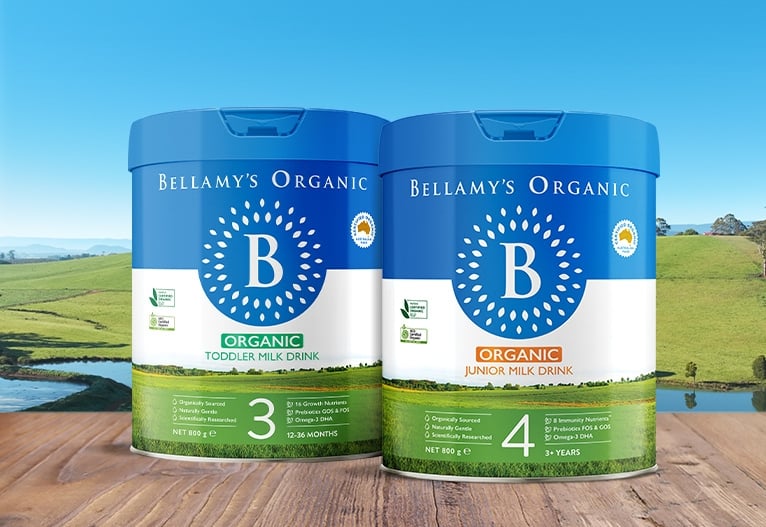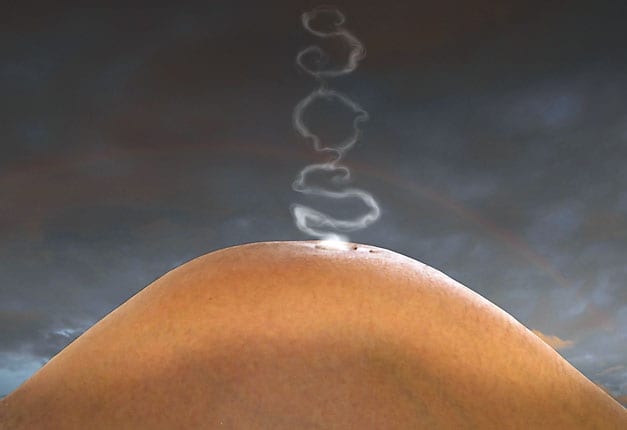Smoking kills an estimated 15,000 Australians each year(1) and is a leading cause of cancer, heart disease, stroke and emphysema(1, 2). The costs of smoking to Australian society in 2004-05 were estimated to be $31.5 billion(3). Most of us know of the dangers of smoking, but there are still around 2.8 million Australians aged 14 years or older who smoke every day(4).
The Australian Government is committed to reducing the national adult daily smoking rate to 10% and halving the Indigenous adult daily smoking rate by 2018, and helping Australians to improve their health. As part of the National Tobacco Campaign, the Australian Government’s More Targeted Approach Campaign is aimed at high need and hard-to-reach groups. One of these groups is pregnant women and their partners.
The Government has created a national campaign that aims to inform pregnant women, women planning on becoming pregnant, and their partners, about the risks of smoking and the benefits of quitting. The campaign provides information encouraging pregnant women and their partners to quit smoking for good—for their own health and for the health of their unborn child.
Quit smoking and give your baby a healthy start
1. SMOKING AND PREGNANCY: THE FACTS
- In 2009, 14.5% of Australian women, or one in seven, smoked during pregnancy(5).
- Smoking during pregnancy increases the risk of ectopic pregnancy, miscarriage, premature labour, low birth weight and sudden infant death syndrome (SIDS)(6, 9, 10, 12).
- Pregnant teenagers are particularly at risk for smoking – 37% of pregnant teenagers reported smoking in 2009(5).
- In 2010, pregnant women aged under 35 years were more likely to smoke (14%) than those aged 35 years or older (9%)(4).
- Many women who avoid smoking during pregnancy relapse after the baby is born(7).
- Social stigma may prevent women from seeking support because they are worried about being judged(7).
2. MYTH-BUSTING
MYTH: “If I quit cold turkey during my pregnancy it will cause stress to me and my baby.”
FACT: The harsh chemicals in every cigarette deprive a baby of vital nutrients(11). Smoking also cuts down the amount of oxygen and food reaching the baby, while also damaging the mother’s health at a vital time(9, 10). A doctor, midwife or the Quitline (13 7848) can offer advice about better ways to relax or cope with stress.
MYTH: “I know other women who have smoked and have had healthy babies.”
FACT: Smoking during pregnancy poses a huge risk to an unborn child(9). In the womb a baby relies on oxygen in a mother’s blood to breathe and smoking deprives a baby of that oxygen(9, 11). Smoking during pregnancy can lead to complications such as low birth weight and premature birth(6) and cleft lip or palate(8). Once born, the child is more likely to suffer a range of health complications such as, breathing difficulties or sudden infant death syndrome (SIDS)(10, 11). Stopping smoking at any point throughout pregnancy is of benefit(8).
MYTH: “There’s nothing wrong with having a low-weight baby, it just means a quicker and easier birth.”
FACT: There is no evidence that having a low birth-weight baby makes things easier for a mother or their baby. Low birth weight is associated with an increased risk of illness and higher risk of the baby dying at birth or soon afterwards(9). A small baby can become stressed during labour and make the birth more complicated(10).
MYTH: “I’m already pregnant. There’s no point quitting now, the damage is done.”
FACT: Quitting during pregnancy reduces the risk of harm to the unborn baby(8). However, planning to quit as early as possible can mean a better start to life for a baby(9). The only safe level of smoking in pregnancy is not smoking at all because any level of nicotine or tobacco smoke exposure increases the risk of adverse effects and the greatest gain in health benefits comes from quitting rather than cutting down(8).
MYTH: “If I cut down on smoking while I’m pregnant that will be enough.”
FACT: There is no safe level of smoking. Smokers who cut down or choose to switch to so called ‘light’ or ‘mild’ cigarettes inhale just as many damaging chemicals(9).
MYTH: “Second-hand smoke won’t affect my unborn child.”
FACT: A woman provides everything her baby needs during pregnancy. Everything she eats, drinks and breathes – including tobacco smoke – affects her and the baby(12). Secondhand smoke causes immediate harm to nonsmokers who breathe it(10). Secondhand smoke exposure during pregnancy can increase the risk of congenital malformations, stillbirths, and possibly other adverse outcomes for the unborn baby(13).
MYTH: “Smoking won’t affect breastfeeding.”
FACT: Breastfeeding has important health benefits for both mothers and babies(9). Breastfeeding women who smoke have lower levels of prolactin than those who do not smoke(9). Prolactin is essential for the initiation and maintenance of milk production(9). Mothers who smoke are more likely to produce less milk and milk of poorer quality(9). Women exposed to second-hand smoke breastfeed for a shorter time(9).
3. TIPS AND ADVICE: HELPING WOMEN TO QUIT
Help is out there, get support. Call the Quitline (13 7848), talk to your doctor and plan a quitting strategy together or visit the Quitnow website at www.quitnow.gov.au. When you feel the urge to light up remember the four Ds(11):
- Delay: Delay for a few minutes – the urge will pass
- Deep breathe: Breathe slowly and deeply
- Do something else: Ring a friend or practise your prenatal exercises
- Drink water: Take ‘time out’ and sip slowly
How to stay quit:
- Gentle exercise such as swimming, walking or yoga will help your body to adjust to being without cigarettes. Always consult your doctor before starting any new exercise program(11).
- Change your environment – make your home and car smoke free. Ask your partner and friends not to smoke around you. Throw away your cigarettes, lighters and ashtrays(11).
- Be positive – tell yourself you are coping and reward yourself with the money you have saved by not buying cigarettes.
- If you are struggling to quit, Nicotine Replacement Therapy (NRT) may help you. You should seek advice and support from your doctor or health professional to work out what is best for you and your baby(8, 11). The main benefits of using NRT are the removal of the other toxins contained in tobacco smoke and the lower dose of nicotine delivered by NRT than tobacco smoke(8).
- NRT is less harmful than smoking during pregnancy and breastfeeding but make sure you speak to your doctor or midwife to find out what will work best for you(8).
Information for partners:
If your partner smokes and is pregnant you should encourage her to quit. You can have a big influence on her. It’s important that she quits smoking for herself and the baby.
If you smoke it will be harder for her to quit, so you may want to give her some moral support and give up too. If you’re not ready to quit, remember passive smoking is dangerous – babies are not protected from smoke in the mother’s womb(12). Protect your baby by not smoking inside your home or car, or around your partner. It is also important that after the birth, you do not smoke near your baby(11).
Secondhand smoke exposes a pregnant woman and the unborn baby to the same range of tobacco smoke toxins experienced by active smokers, although at lower levels(13). Tobacco smoke damages the tissues of an unborn baby’s growing brain and lungs(12).
For more information and support on ways to quit call the Quitline 13 7848, visit the website www.quitnow.gov.au, or call your doctor or healthcare professional.
REFERENCES
-
Begg S, Vos T, Barker B, Stevenson C,StanleyL, Lopez AD. 2007. The burden of disease and injury in Australia 2003. PHE 82.Canberra: AIHW.
-
Australian Instituteof Healthand Welfare & Australasian Association of Cancer Registries. 2010. Cancer inAustralia: an overview, 2010. Cancer series no. 60. Cat. No. CAN 56.Canberra: AIHW.
-
Collins D & Lapsley H. 2008. The costs of tobacco, alcohol and illicit drug abuse to Australian society in 2004/05.Canberra: Commonwealth ofAustralia.
-
AustralianInstituteofHealthand Welfare. 2011. National Drug Strategy Household Survey report. Drug statistics series no. 25. Cat. no. PHE 145.Canberra: AIHW.
-
Li Z, McNally L, Hilder L & Sullivan EA. 2011.Australia’s mothers and babies 2009. 2011. Perinatal statistics series no. 25. Cat. No PER 52.Sydney: AIHW National Perinatal Epidemiology and Statistics Unit.
-
Lumley J, Chamberlain C, Dowswell T, Oliver S, Oakley L, Watson L. 2009. Interventions for promoting smoking cessation during pregnancy (Review). Cochrane Library 2009, Issue 3. John Wiley & Sons Ltd.
-
Ebert, L M & Fahy, K. 2007. Why do women continue to smoke in pregnancy? Women and Birth, vol. 20, pp. 161-168.
-
Zwar N,RichmondR, Borland R, Peters M, Litt J,BellJ, Caldwell B,FerretterI.2011. Supporting smoking cessation: a guide for health professionals.Melbourne: TheRoyalAustralianCollegeof General Practitioners.
-
British Medical Association. 2004. Smoking and reproductive life, the impact of smoking on sexual, reproductive and child health. British Medical Association Board of Science and Education & Tobacco Control Resource Centre, BMA Publications, London.
-
US Department of Health and Human Services. 2004. The health consequences of smoking. A report of the Surgeon General.Rockville,MD: US Department of Health and Human Services, Public Health Service, Office of the Surgeon General. Available from: http://www.surgeongeneral.gov/library/smokingconsequences/
-
Cancer CouncilQueensland. Quit smoking for a healthy baby & you magazine. Available from: http://www.cancerqld.org.au/ucns_docs/54263_Baby_and_you.pdf
-
U.S.Department of Health and Human Services. 2010. How Tobacco Smoke Causes Disease: The Biology and Behavioral Basis for Smoking-Attributable Disease: A Report of the Surgeon General.Atlanta,GA:U.S.Department of Health and Human Services, Centers for Disease Control and Prevention,NationalCenterfor Chronic Disease Prevention and Health Promotion, Office on Smoking and Health. Consumer Booklet.
-
Leonardi-Bee J, Britton J and Venn A. 2011. Secondhand Smoke and Adverse Fetal Outcomes in Nonsmoking Pregnant Women: A Meta-analysis. Pediatrics; originally published online 7 March 2011.





















8:48 am
10:06 pm
4:06 pm
11:09 am
4:28 pm
5:37 pm
2:49 pm
2:52 pm
- «
- 1
- …
- 4
- 5
Post a commentTo post a review/comment please join us or login so we can allocate your points.